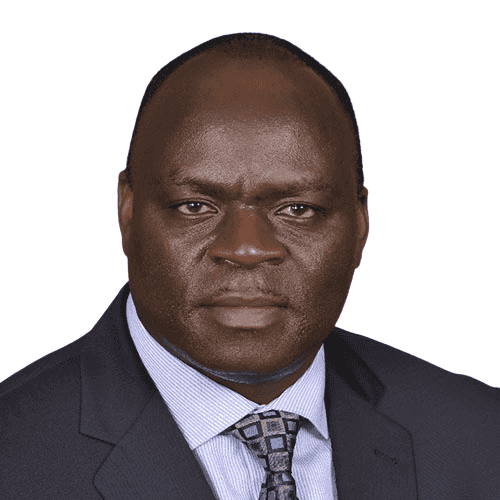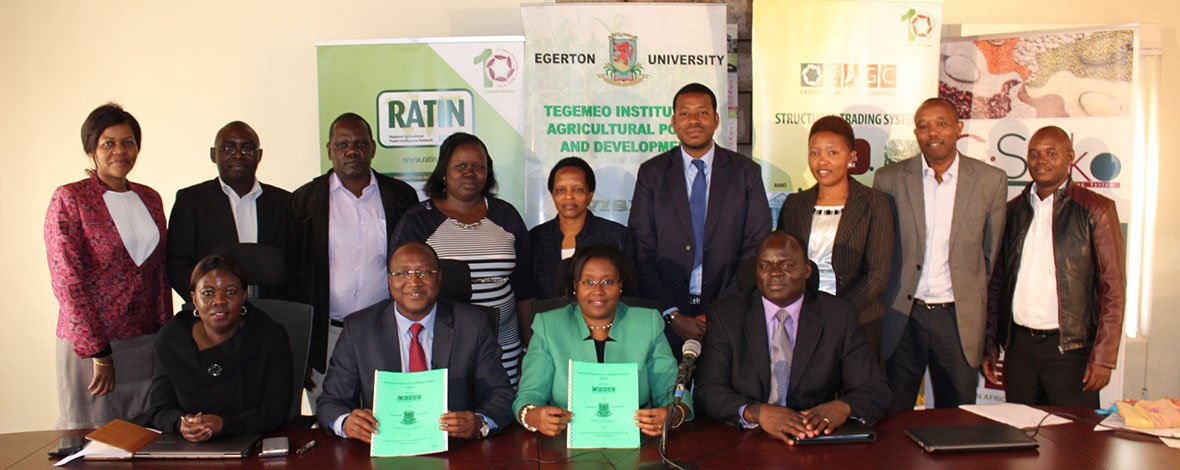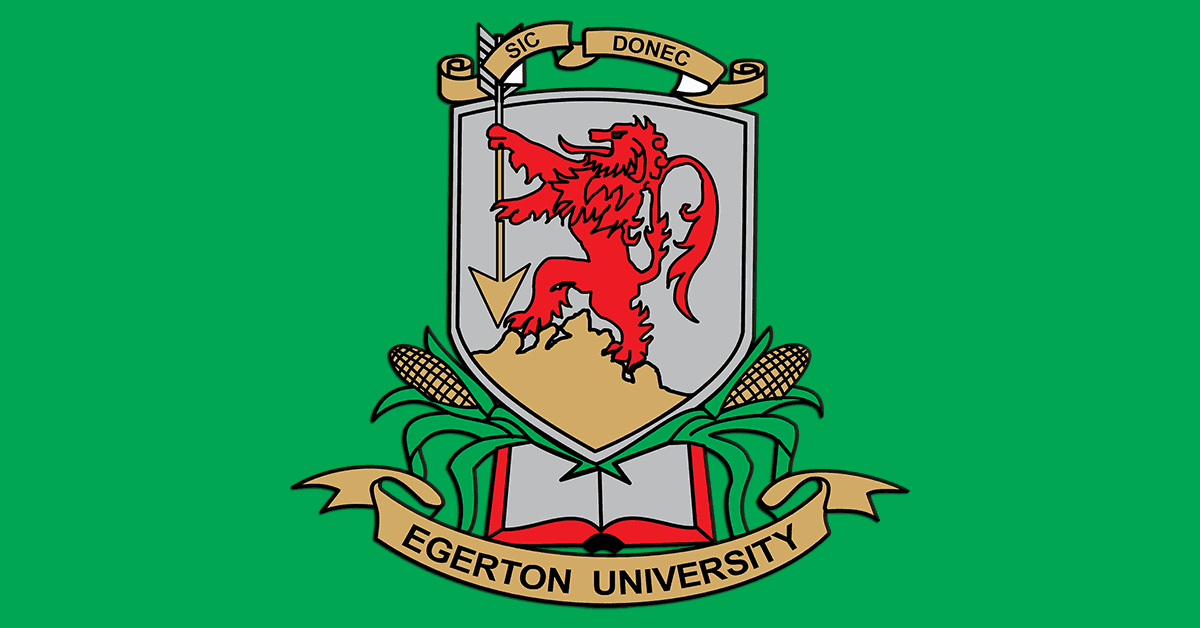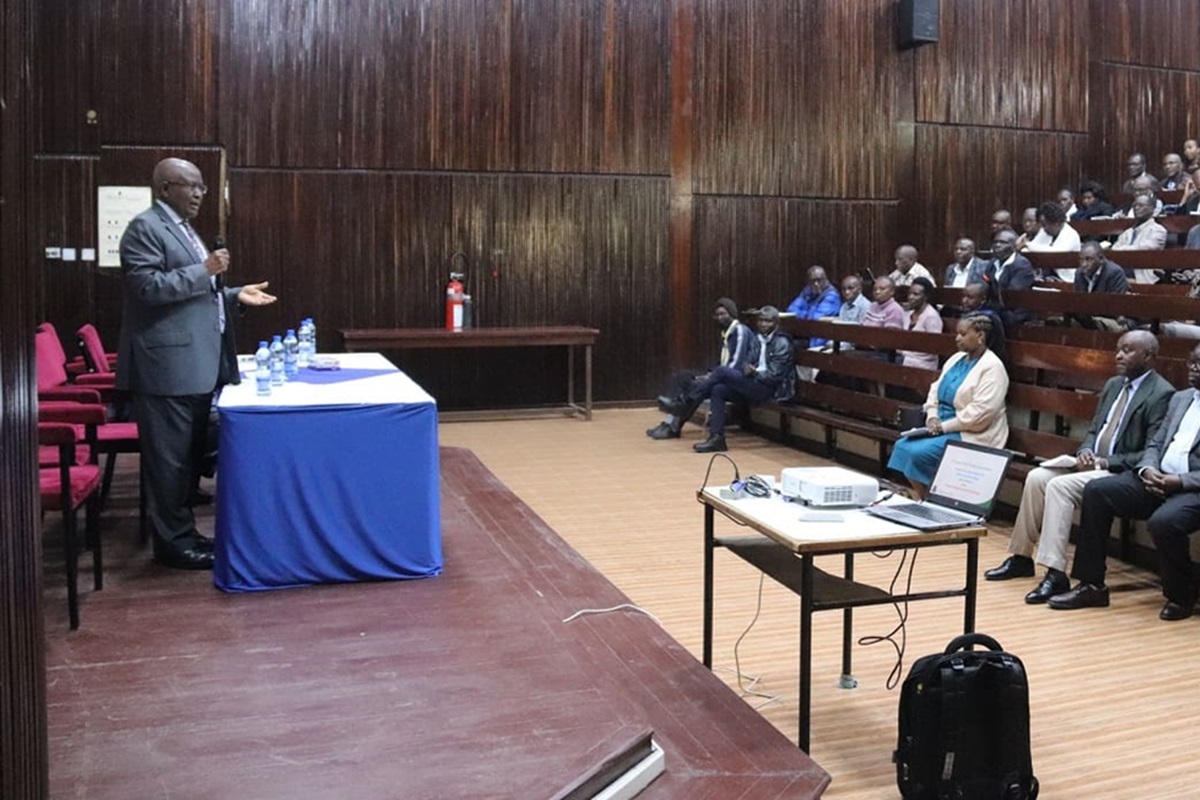Tegemeo Institute Lands Strategic Research Partnerships
 Dr. Millitone AyiekoTegemeo Institute of Agricultural Policy and Developement, Egerton University, is a leading provider of evidence and knowledge for accountability and learning, to catalyse agricultural and rural sector transformation. The Institute's research is organised around five thematic areas: transformation of the agricultural sector for inclusive growth and development; enhancing rural service delivery in a devolved and dynamic institutional setting; building resilience in the context of climate change; unlocking the potential for regional integration for trade and food security; and provision of Measurement, Learning and Evaluation (MLE) services.
Dr. Millitone AyiekoTegemeo Institute of Agricultural Policy and Developement, Egerton University, is a leading provider of evidence and knowledge for accountability and learning, to catalyse agricultural and rural sector transformation. The Institute's research is organised around five thematic areas: transformation of the agricultural sector for inclusive growth and development; enhancing rural service delivery in a devolved and dynamic institutional setting; building resilience in the context of climate change; unlocking the potential for regional integration for trade and food security; and provision of Measurement, Learning and Evaluation (MLE) services.
During the 2020/2021 period, the Institute partnered with the Ministry of Agriculture, Livestock, Fisheries and Cooperatives to support three World Bank-funded projects. These projects are the Kenya are the Kenya Climate Smart Agriculture Project (KCSAP), the National Agricultural Rural Inclusive Growth Project (NARIGP), and the National Value Chain Support Programme (E-Voucher), which are being implemented across all Kenyan rural counties. Specifically, the Institute supported the operationalisation of the respective projects' Monitoring and Evaluation strategies, capacity building for project staff and implementation of the projects' baseline surveys. Staff at Tegemeo Institute held consultative meetings with governors of five counties ( Kisumu, Kisii, Kakamega, Vihiga, and Makueni) regarding the County Functional Analysis studies which will be conducted by the Institute. This follows the successful completion of a study by the Institute on Functional Analysis for Kenya's Agricultural Sector at the National and Intergovernmental Levels.
Further, Tegemeo partnered with the Regional Network of Agricultural Policy Research Institutes (ReNAPRI), the International Food Policy Research Institute (IFPRI), Michigan State University (MSU), and the Overseas Development Institute's Chronic Poverty Advisory Network to analyse the impact of the Covid-19 pandemic and associated policy responses on food systems, national and global food and nutrition security, poverty and development. These analyses are useful in advancing policy-relevant and evidence-based insights on actions to counter the negative effects of the Covid-19 pandemic and how to develop effective preparedness for managing future pandemics.
Tegemeo, partnering in a consortium with MSU and Purdue University (USA), was recently awarded a grant by USDA/USAID for a three-year project to support the agencies' work in Kenya and the East African region through applied research and analysis. Tegemeo is the lead African Institution and will host the project office in addition to implementing the project activities.

In yet another significant development, Tegemeo was awarded two grants by USAID's Feed the Future Advancing Local Leadership and Innovation Networks (All-In). This is a collaboration between the International Centre for Evaluation and Development (ICED) and the Feed the Future Innovation Lab for Markets, Risk and Resilience at the University of California at Davis, USA. ALL-IN advances the host country's leadership in defining implementing research projects and deepening host-country networks. Out of the more than 125 proposals that were submitted, Tegemeo Institute is one of the only two institutions that received funding for two projects under the ALL-IN initiative. One of the grants supports an Impact Study of Digital Agro-Weather Advisories on Productivity and Resilience in Farming and Pastoral Communities of Kenya. The project partners are KCSAP's national and county coordinating units, Kenya Agricultural and Livestock Research Organisation (KALRO), Kenya Meteorological Department (MED), and Virginia Tech University, USA.
The second grant supports a study on Willingness to Pay for Soil Testing and Impact of Soil Test Information on Demand for Soil Acidity Management Technologies on Smallholder Farms in Kenya. The research will be be undertaken in partnership with MSU and service providers involved in soil testing and distribution of lime products.
The Institute is also partnering with Mathematica in the Bill and Melinda Gates Foundation-funded evaluation of AGRA's PIATA (Partnership for Inclusive Agricultural Transformation in Africa) programme. Tegemeo will be coordinating data collection and will also lead in evaluating the policy and state capability thematic area of the evaluation. In addition, the Institute is collaborating with ReNAPRI, Alliance for African Partnership (AAP), and MSU in a consortium to advance conversations about how to increase fertilizer use and soil health in Africa.
Finally, the Institute continues to provide useful evidence to the Ministry of Agriculture, Livestock, Fisheries and Cooperatives that is informing debate and reforms in the coffee, tea, beef and aquaculture value chains.
Director, Tegemeo Institute of Agricultural Policy and Development, Egerton University.







